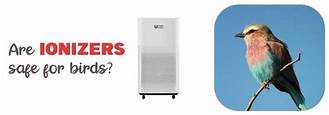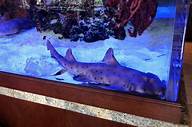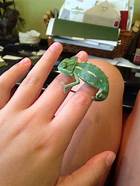Are Ionizers Safe for Pets?
Ionizers are devices that produce negative ions, which are said to have a number of benefits for human health. Some people believe that ionizers can also improve the health of pets, but there is no scientific evidence to support this claim. In fact, there is some concern that ionizers may actually be harmful to pets.

How Do Ionizers Work?
Ionizers work by releasing negative ions into the air. These ions are attracted to positively charged particles, such as dust, pollen, and pet dander. When the negative ions come into contact with these particles, they neutralize their charge and cause them to fall to the ground. This can help to improve air quality and reduce the number of allergens in the air.
Are Ionizers Safe for Pets?
There is no scientific evidence to support the claim that ionizers are safe for pets. In fact, there is some concern that ionizers may actually be harmful to pets. Here are a few reasons why:
- Ionizers can produce ozone. Ozone is a gas that can irritate the eyes, nose, and throat. It can also be harmful to the respiratory system. Pets are more likely to be affected by ozone than humans because they have smaller lungs and respiratory systems.
- Ionizers can produce other harmful chemicals. Ionizers can also produce other harmful chemicals, such as formaldehyde and acrolein. These chemicals can cause a variety of health problems, including cancer, respiratory problems, and skin irritation.
- Ionizers can generate static electricity. Ionizers can generate static electricity, which can be harmful to pets. Static electricity can cause your pet's fur to stand on end and can also make them more likely to be shocked.
What Are the Alternatives to Ionizers?
If you are looking for a way to improve the air quality in your home, there are a number of alternatives to ionizers that are safer for pets. These alternatives include:
- Air purifiers. Air purifiers remove harmful particles from the air without producing any harmful chemicals. They are a safe and effective way to improve air quality in your home.
- Humidifiers. Humidifiers add moisture to the air, which can help to reduce the number of allergens in the air. They can also help to relieve dry skin and respiratory problems.
- Plants. Plants can help to improve air quality by absorbing harmful toxins and releasing oxygen. They can also help to reduce stress and anxiety.
Conclusion
Ionizers are not safe for pets. They can produce harmful chemicals, such as ozone and formaldehyde, which can cause a variety of health problems. They can also generate static electricity, which can be harmful to pets. If you are looking for a way to improve the air quality in your home, there are a number of alternatives to ionizers that are safer for pets.
Declaration: All article resources on this website, unless otherwise specified or labeled, are collected from online resources. If the content on this website infringes on the legitimate rights and interests of the original author, you can contact this website to delete it.



